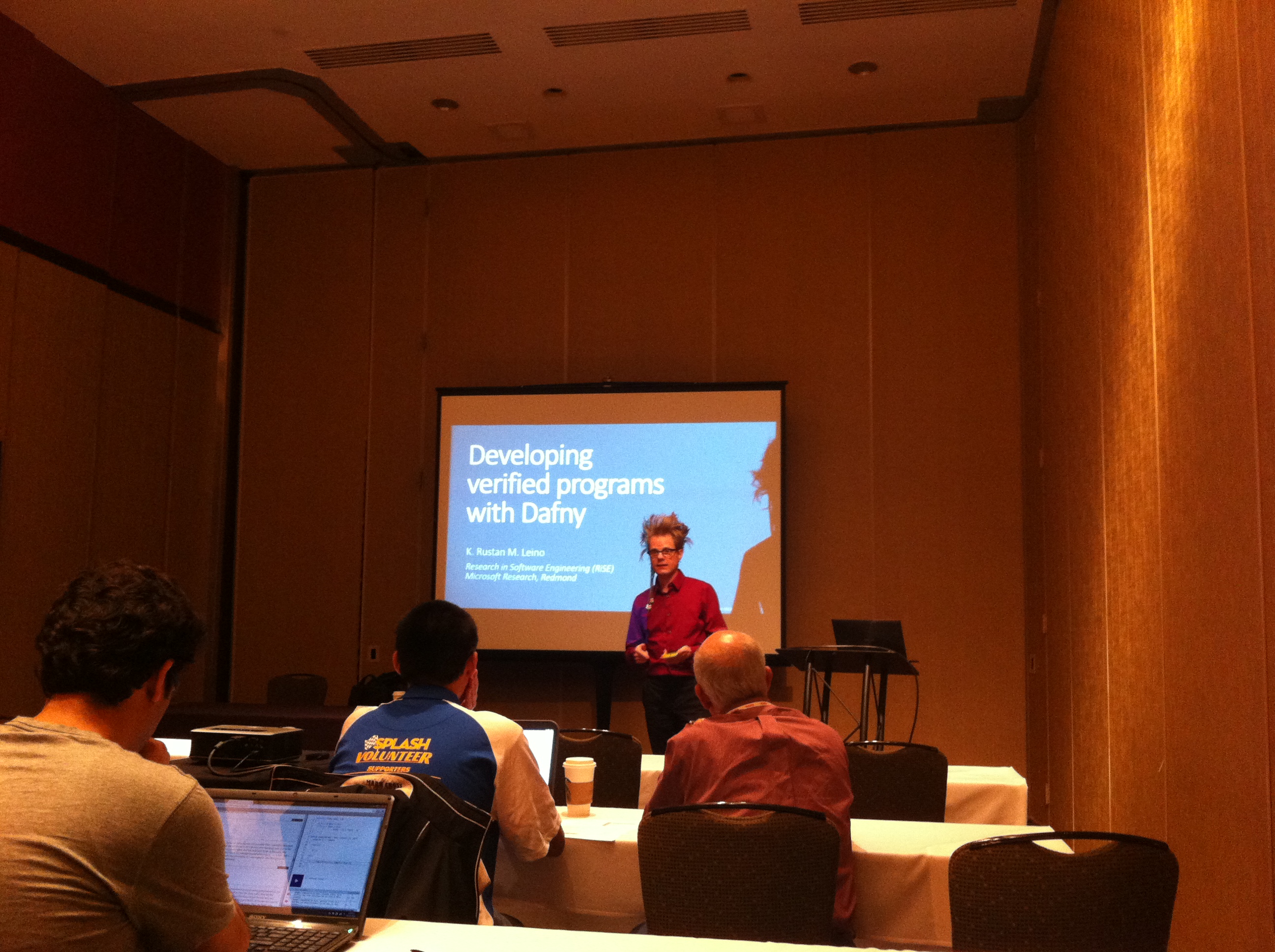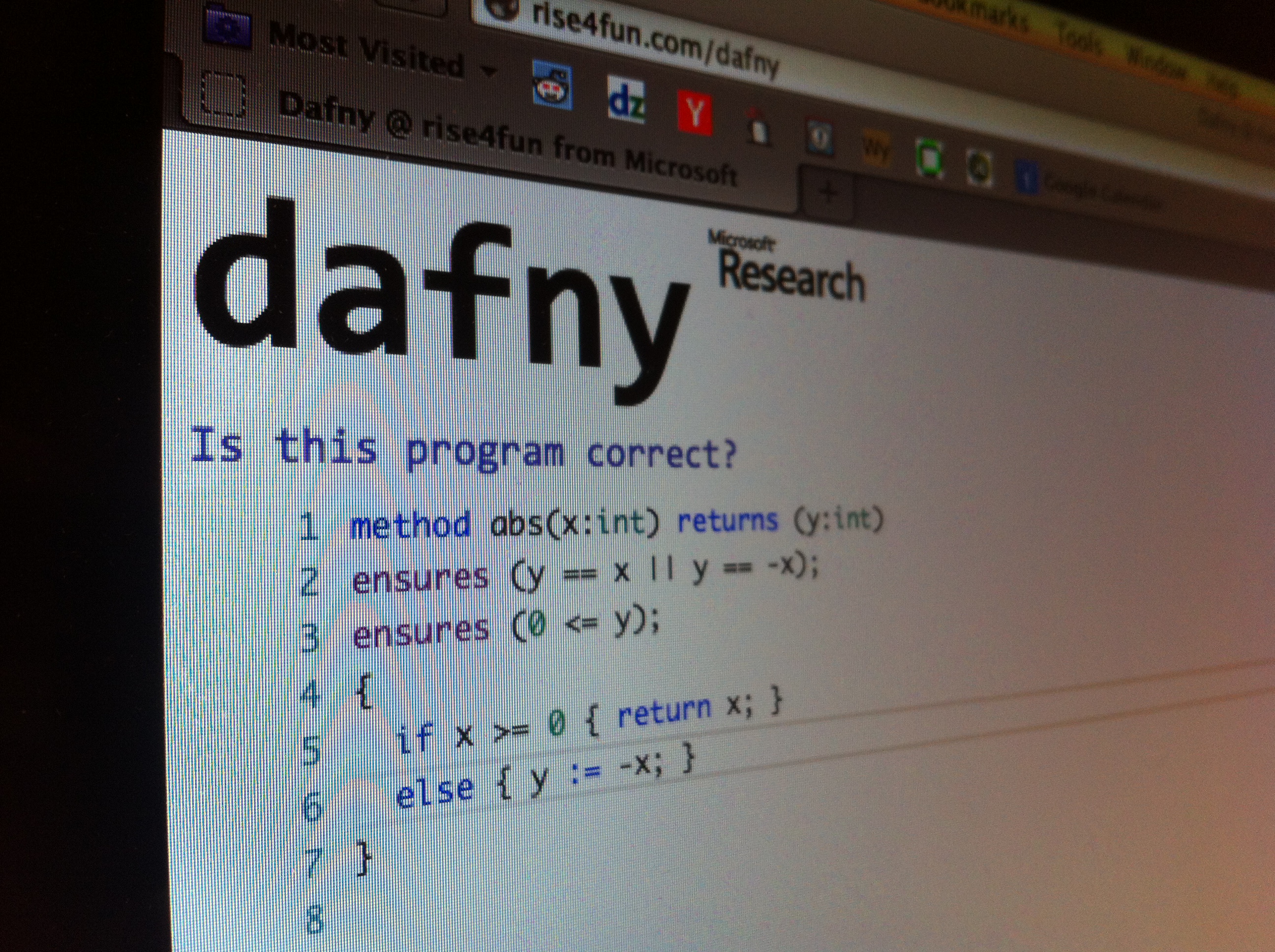The Dafny Tutorial at SPLASH'13

During the tutorial, we went through a number of examples, including several focusing on loop invariants. For example, here’s the Dafny code for the absolute function:
method abs(x:int, y:int) returns (z:int)
ensures x == z || y == z;
ensures x <= z && y <= z; { if x > y {
return x;
} else {
return y;
}
}
You can find the code for this here, where you can run it directly in your browser and play around with it. In fact, the browser version is surprisingly good, and seems to have improved a lot lately. Dafny statically verifies (automatically) that this method does indeed meet its specification.
Now, here’s one for you to try:
method To100by2s()
{
var n := 0;
while n < 100
invariant ???;
{
n := n + 2;
}
assert n == 100;
}
The question is: what loop invariant can replace ??? to prove the assertion holds? Try to solve it here! And, there are at least two different ways to do it …
Finally, here’s a way more complicated example which illustrates binary search:
method BinarySearch(arr: array, key: int) returns (r: int)
requires arr != null;
requires forall i,j :: 0 <= i < j < arr.Length ==> arr[i] <= arr[j];
ensures 0 <= r ==> r < arr.Length && arr[r] == key;
ensures r < 0 ==> forall i :: 0 <= i < arr.Length ==> arr[i] != key;
{
var lo, hi := 0, arr.Length;
while lo < hi
invariant 0 <= lo <= hi <= arr.Length;
invariant forall i :: 0 <= i < lo ==> arr[i] != key;
invariant forall i :: hi <= i < arr.Length ==> arr[i] != key;
{
var mid := (lo+hi) / 2;
if arr[mid] < key {
lo := mid + 1;
} else if arr[mid] > key {
hi := mid;
} else if arr[mid] == key {
return mid;
}
}
return -1;
}
Again, you can run the code directly from here. This example is pretty neat! Although, it’s worth mentioning that it doesn’t suffer from the hidden overflow bug which plagued Java because Dafny, like Whiley, uses unbound arithmetic (i.e. it never overflows).

